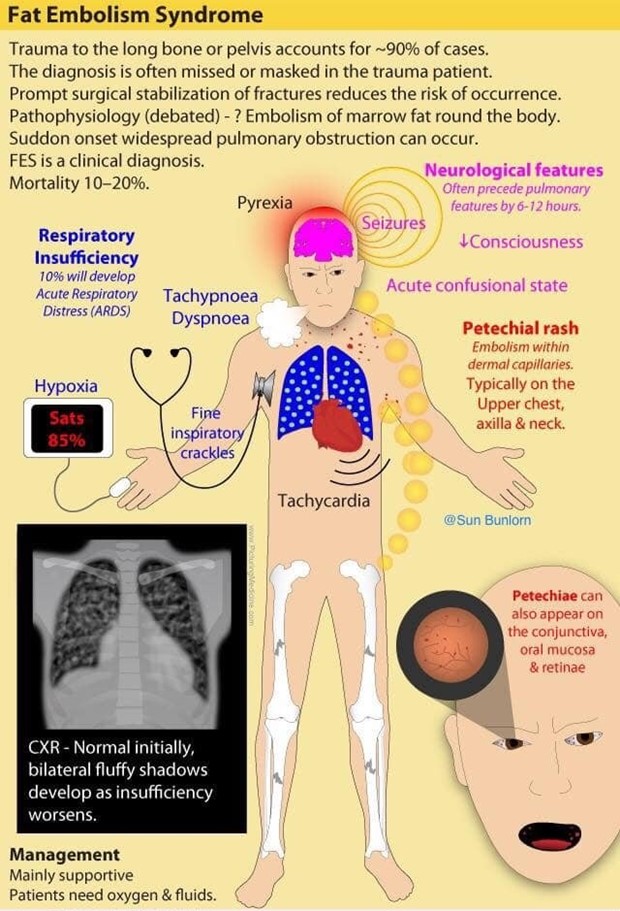What is one airway complication that can occur during surgery when the patient is receiving general anesthesia care?
Myocardial Infarction (MI)
Hernia
Cerebral Vascular Accident (CVA)
Aspiration
The Correct Answer is D
Aspiration refers to the inhalation of gastric contents or other substances into the respiratory tract. During surgery, when the patient is under general anesthesia, the protective airway reflexes may be suppressed, increasing the risk of aspiration. If stomach contents enter the lungs, it can lead to aspiration pneumonia, respiratory distress, and other complications.
While myocardial infarction (MI), hernia, and cerebral vascular accident (CVA) are possible complications that can occur during surgery, they are not specifically related to airway issues.
MI is a cardiac event involving the blood supply to the heart muscle, hernia refers to the protrusion of an organ or tissue through an abnormal opening, and CVA refers to a disruption of blood flow to the brain. These complications can have various causes but are not directly related to the airway during surgery.
Nursing Test Bank
Naxlex Comprehensive Predictor Exams
Related Questions
Correct Answer is D
Explanation
Celiac disease is an autoimmune disorder characterized by an abnormal immune response to gluten, a protein found in wheat, barley, and rye. When individuals with celiac disease consume gluten, their immune system reacts by damaging the lining of the small intestine, specifically the villi. The damaged villi are unable to effectively absorb nutrients from food, leading to malabsorption and a variety of symptoms.

Correct Answer is D
Explanation
Fat embolism syndrome can occur when fat globules enter the bloodstream after a long bone fracture, such as a femur fracture. The fat globules can travel to the lungs and cause respiratory distress and decreased oxygen saturation. The symptoms observed in the client, including tachypnea (labored breathing), decreased oxygen saturation (88%), and the presence of petechiae (small red or purple spots) on the neck and anterior chest, are consistent with fat embolism syndrome.

Fat embolism syndrome is a serious condition that requires immediate medical attention. Notifying the healthcare provider allows for prompt evaluation, confirmation of the diagnosis, and initiation of appropriate treatment. This may involve further diagnostic tests such as a chest CT scan, as mentioned in one of the options, to rule out other potential causes or complications.
Whether you are a student looking to ace your exams or a practicing nurse seeking to enhance your expertise , our nursing education contents will empower you with the confidence and competence to make a difference in the lives of patients and become a respected leader in the healthcare field.
Visit Naxlex, invest in your future and unlock endless possibilities with our unparalleled nursing education contents today
Report Wrong Answer on the Current Question
Do you disagree with the answer? If yes, what is your expected answer? Explain.
Kindly be descriptive with the issue you are facing.
